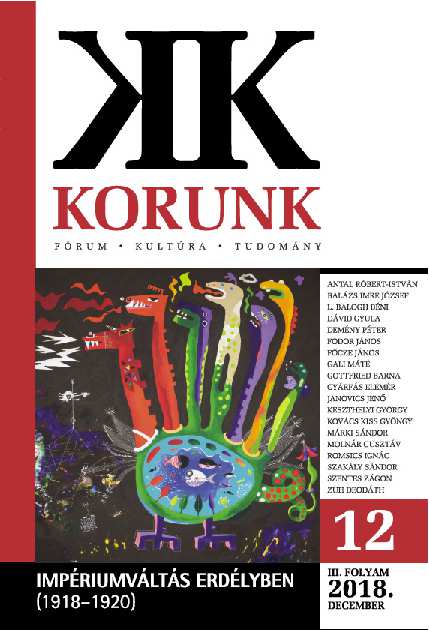Magyar nemzetiségpolitikai kísérletek és a román álláspont 1918 őszén
Hungarian National Policy Attempts and the Romanian Standpoint in Autumn 1918
Author(s): János FodorSubject(s): Pre-WW I & WW I (1900 -1919)
Published by: Korunk Baráti Társaság
Keywords: national claims; national policy attempts of the Károlyi government; assemblies; Marosvásárhely (Târgu-Mureş); Gyulafehérvár (Alba Iulia); Kolozsvár (Cluj)
Summary/Abstract: By the autumn of 1918, it has become clear that the Austro-Hungarian Empire has lost the war. Several international and internal political processes have rendered the chronology of autumn and winter of 1918 especially intense and dense. The Empire suffered not only a military but also a political collapse. With the dissolution of the dual monarchy, the regime change and the change of political rule have also commenced. Furthermore, as a result of the 14 Wilsonian point, various national demands made their appearance. Proposing a democratic system, the Károlyi government attempted to deal with the national issue using several methods. At the same time, in Transylvania, three great assemblies were held, Marosvásárhely (Târgu-Mureş), Gyulafehérvár (Alba Iulia), Kolozsvár (Cluj). These were the defining moments that influenced later developments. Their effects reach until today, both from the point of view of memory policy and the point of view of legal reference.
Journal: Korunk
- Issue Year: 2018
- Issue No: 12
- Page Range: 12-21
- Page Count: 10
- Language: Hungarian

